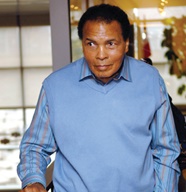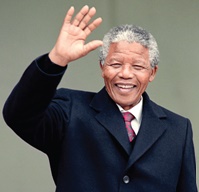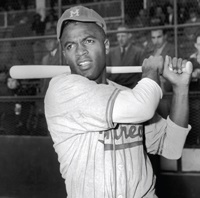As the chair of the DeVos Sport Business Management Graduate Program at the University of Central Florida, I call on my colleagues in the field of sports management to help our graduates and alumni focus not only on understanding the business side of sports and building the bottom lines of organizations but also to understand the power of sports to bring about positive social change. There are examples of that power of sports healing communities and affecting social change. Think the Yankees in the World Series after 9/11, the Red Sox winning it all in the year of the Boston Marathon bombing, and the Saints winning the Super Bowl several years after Hurricane Katrina. Think Jackie Robinson and Billie Jean King. Think Muhammad Ali. Think Nelson Mandela.
However, if the sports world our graduates enter is blemished by controversy, scandal and bad decision-making, then that power of sports to do good is reduced and only the bottom line will remain paramount.
For most of my 45-year career in higher education and sports, the opportunity for women, people of color, people from the LGBT communities, people with disabilities, people who are too old or too young, or, more recently, people who believe in the wrong religion, have had fewer opportunities to succeed
 |
|
 |
Sports management programs and sports execs should keep the examples of Billie Jean King, Jackie Robinson, Muhammad Ali and Nelson Mandela in mind when making tough decisions.
Photo by: GETTY IMAGES (4) |
and, therefore, to have an impact on the world of sports. Opportunities for women and people of color have improved since the 1990s. In the last five years, there have been more opportunities for people with disabilities and people from the LGBT community, although we still have a long way to go. Our students need to leave our programs understanding that diversity and inclusion are not only moral imperatives but also business imperatives. And our programs need to recruit and graduate more women and students of color into our programs.
For decades, fans cheered wildly as our football players ferociously bounced off each other after an incredible hit, as our hockey players got into fights on the ice, as our soccer players used their heads to control the ball, as our boxers savagely beat each other. Now the public is finally seeing the risks that these athletes face. With the reported one out of three former NFL players facing cognitive issues as a result of concussions, parents now face decisions about allowing their young children to play that sport.
For decades, bad decisions were made when we failed to penalize athletes who beat women and girls. Now, faced by the Ray Rice controversy, the NFL is dealing with yet another crisis of enormous magnitude. Perhaps leaders in sport will now make good decisions about not only sanctioning athletes effectively for domestic violence and sexual assault but also to help our sports become educational forces by addressing this issue throughout the year and not just during a news cycle.
We don’t know how long some owners and others in our front offices have held racist beliefs and made racist statements. You had to wonder when the power of social media exposed former Los Angeles Clippers owner Donald Sterling.
Adam Silver created a clear and decisive action plan for what happens to the violators. His diverse senior advisers were there to counsel him. In the NFL’s handling of the Rice case, Roger Goodell had a serious lack of senior women in the league office and on the teams to counsel him. The NBA scored well with the public while the NFL is still wading through a public relations nightmare.
We have to educate our students that words do matter. Ask Atlanta Hawks co-owner Bruce Levenson, who wrote in an email, “I have been open with our executive team about these concerns. I have told them I want some white cheerleaders and while i don’t care what the color of the artist is, i want the music to be music familiar to a 40 year old white guy if that’s our season tixs demo. i have also balked when every fan picked out of crowd to shoot shots in some time out contest is black. I have even bitched that the kiss cam is too black.” Levenson is selling his share of the team.
We have to teach our soon-to-be graduates and remind the alumni of our sports management programs that for them to use the power of sports to create positive social change they have to learn how to act on and sometimes create sports as a servant for the public good. They have to learn that with all actions there are choices, decisions and consequences. When an unethical choice is made, it may be swept under the rug for a while but it will eventually come out and hurt everyone involved with the organization and the sport.
We have to teach our graduates that they not only need to understand the business aspects of sports but also have to be prepared to be leaders throughout their career and, especially, in times of crisis.
I am proud to be part of the sports management program at UCF and proud to have my colleagues at other schools preparing the minds and hearts of young people around the country to be part of the sports industry. I call on my fellow colleagues to raise the bar in their programs so that we are better serving the public good as well as our sports organization’s bottom line.
Richard E. Lapchick (rlapchick@ucf.edu) is the chair of the DeVos Sport Business Management Graduate Program and is the director of the Institute for Diversity and Ethics in Sport at the University of Central Florida. Follow him on Twitter @richardlapchick and on Facebook at facebook.com/richard.lapchick.








